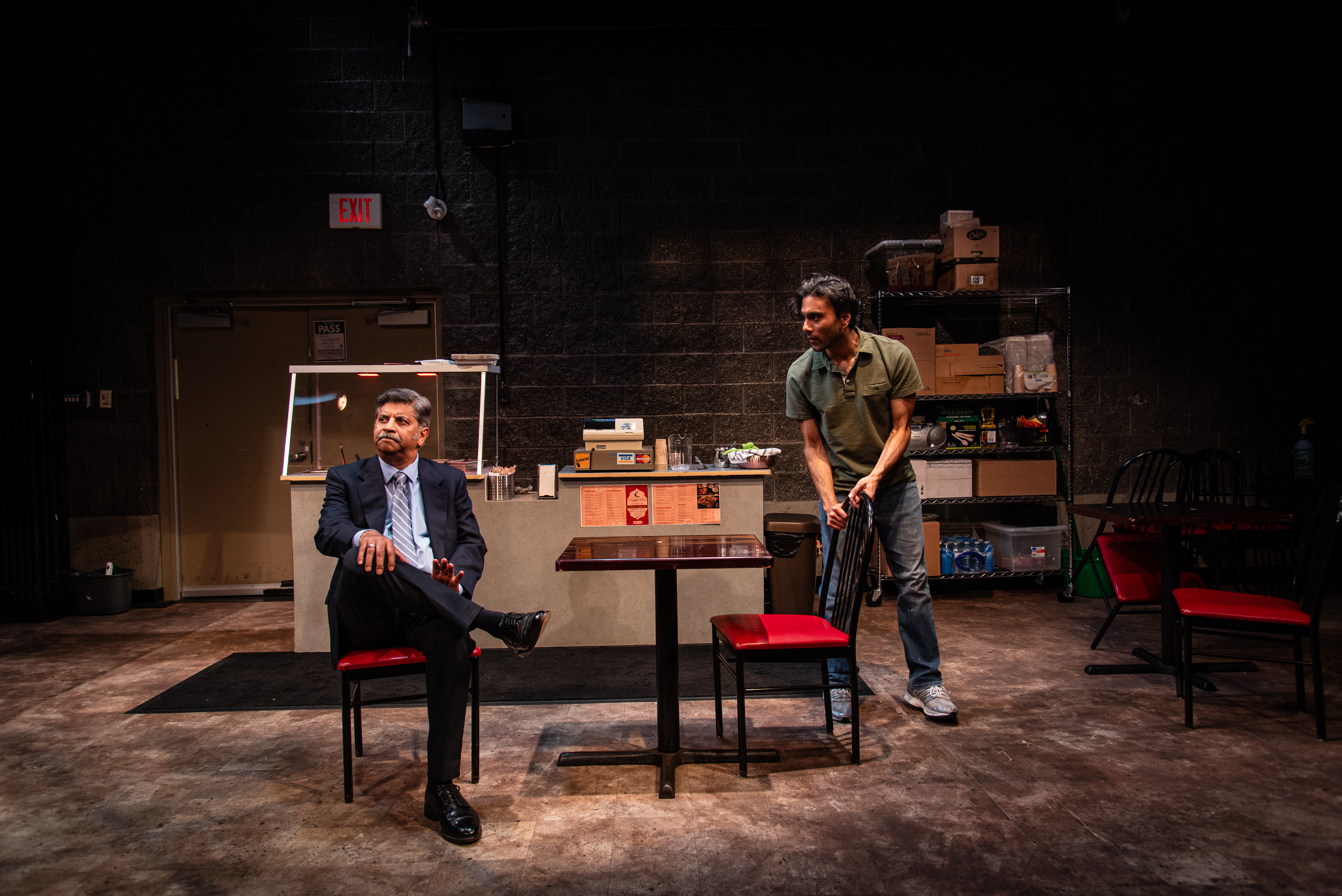
“Behind the Moon”, written by Anosh Irani, uplifts untold narratives of immigrant dreams. As the title suggests, the underbelly of Canada’s migrant labor exploitation often remains hidden behind a glamorous facade. Presented by Touchstone Theatre, the production is playing in Vancity Culture Lab, located at The Cultch from March 27th to April 6th, 2025. Buy your tickets here.
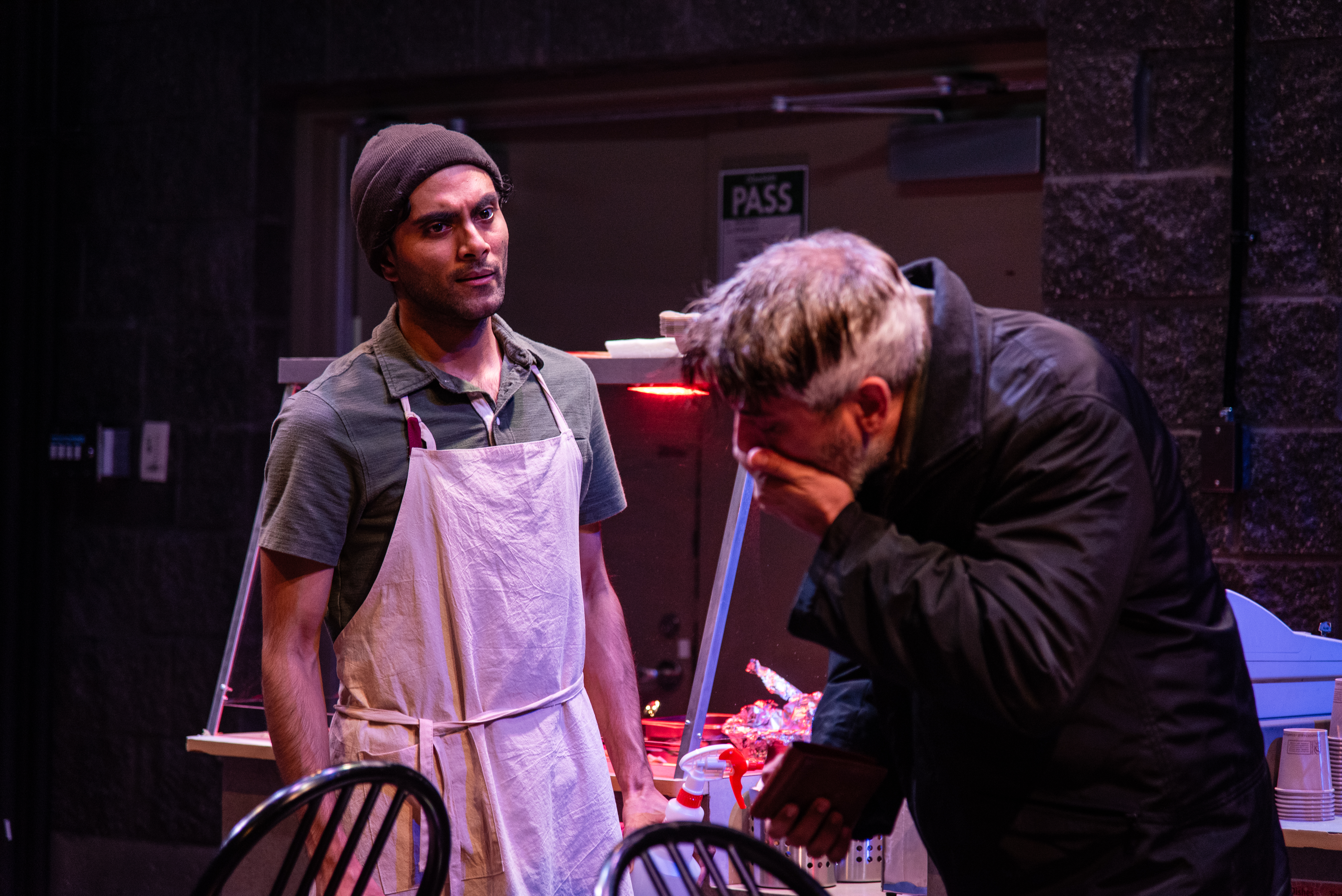
The play unfolds in an urban Canadian restaurant serving Mughlai cuisine, manned by the protagonist, Ayub (played by Praneet Akilla) who toils late into the night in a bid to maintain the establishment’s sheen. His wife and daughter live in Mumbai, India. Having lived apart from them for four years, Ayub dreams of visiting them and hopes to bring them back with him. His employer Qadir Bhai (played by Dhirendra) appears to be a benevolent man, himself an immigrant, harboring keen business ambitions. The fulcrum of the show, however, is a character named Jalal (played by Zahf Paroo), a Kashmiri immigrant who is a mosque architect by training but a taxi driver by trade.
Each of the three characters are spirited and fully fleshed out. Their varied personalities and social position lays the ground for a nuanced exploration around the illusory trappings of capitalist and settler-colonial regimes. Despite a shared identity of being Muslim immigrants, all three characters experience unique challenges posed by factors beyond one’s control. As the story unravels, it becomes evident that Ayub has more in common with a rodent that infests the establishment than he does with his manipulative, narcissistic employer. Jalal is mired with grief, family estrangement and alienation from his land, yet is guided by Islamic spirituality and liberatory ideals. “Don’t beg, Ayub. Freedom is never won by begging,” he proclaims, echoing the revolutionary words of a Ghadar poet, Kartar Singh Sarabha. A friendship that seems uncanny at first, gradually blossoms into shared empathy between Jalal and Ayub. Heartfelt yearning for their respective daughters becomes a string that threads the plot together. The duo’s paternal yearning, juxtaposed against Qadir Bhai’s conceited filial pride, enhances the contours of the story’s eventual conflicts.
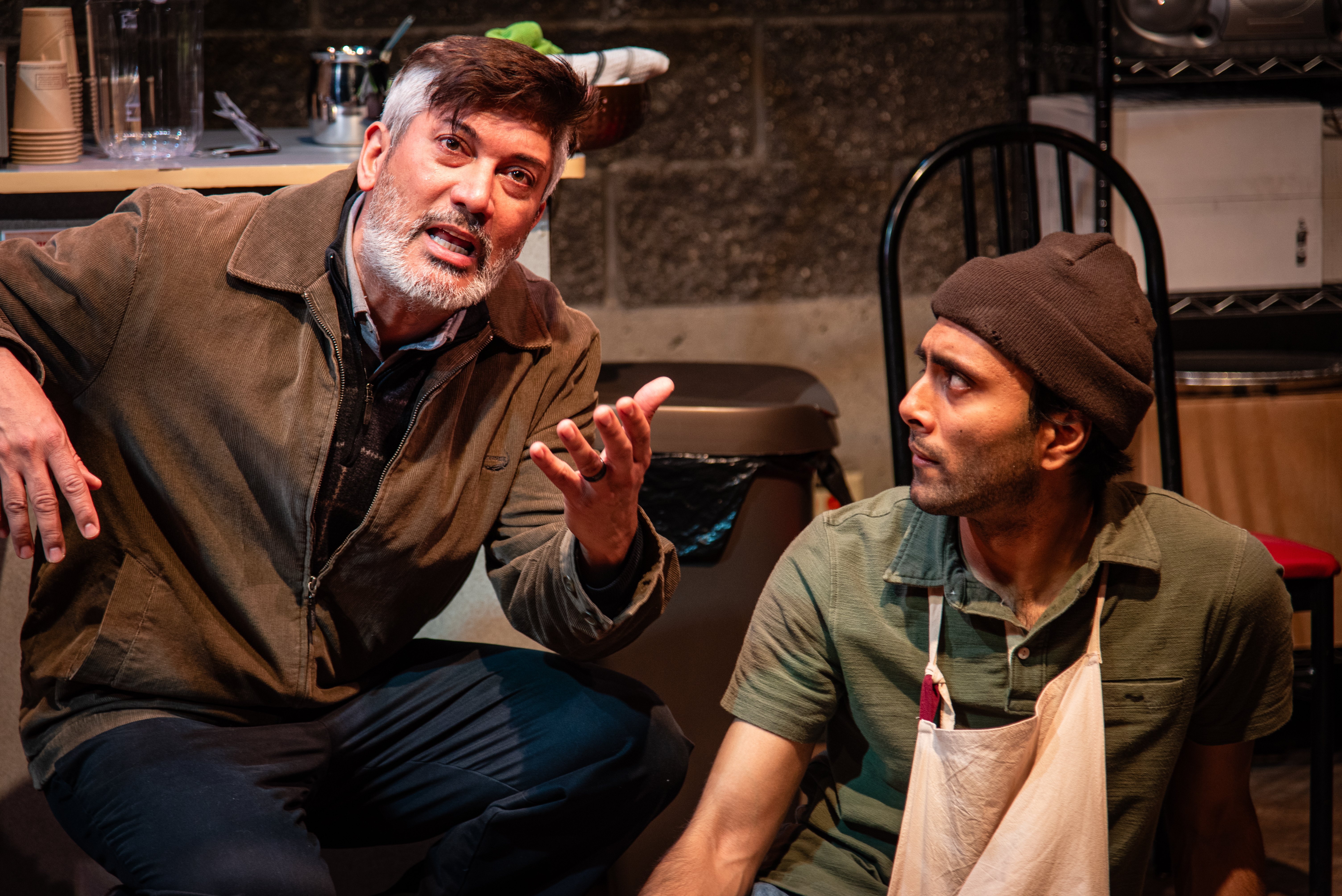
With a run time of over 100 minutes, the dialogues are lengthy, at times verging on verbose–be it Qadir Bhai’s sermons about hard work or Ayub’s progressively more unhinged articulations of feeling trapped and trampled upon. The emotional tenor of the show ramps up, eventually reaching a feverish pitch. At certain points, the portrayal of Qadir’s hubris. Ayub’s desperation and Jalal’s trauma is dialled up to absurd levels at the risk of belying the insidious, mostly subtle shades of power, exploitation and suffering that animate such tensions. Dhirendra’s performance is stellar, making the audience chuckle one moment and seethe with disgust the next. The show ends on a spirited note–a satisfying pay-off–following a rather intense climactic tussle.
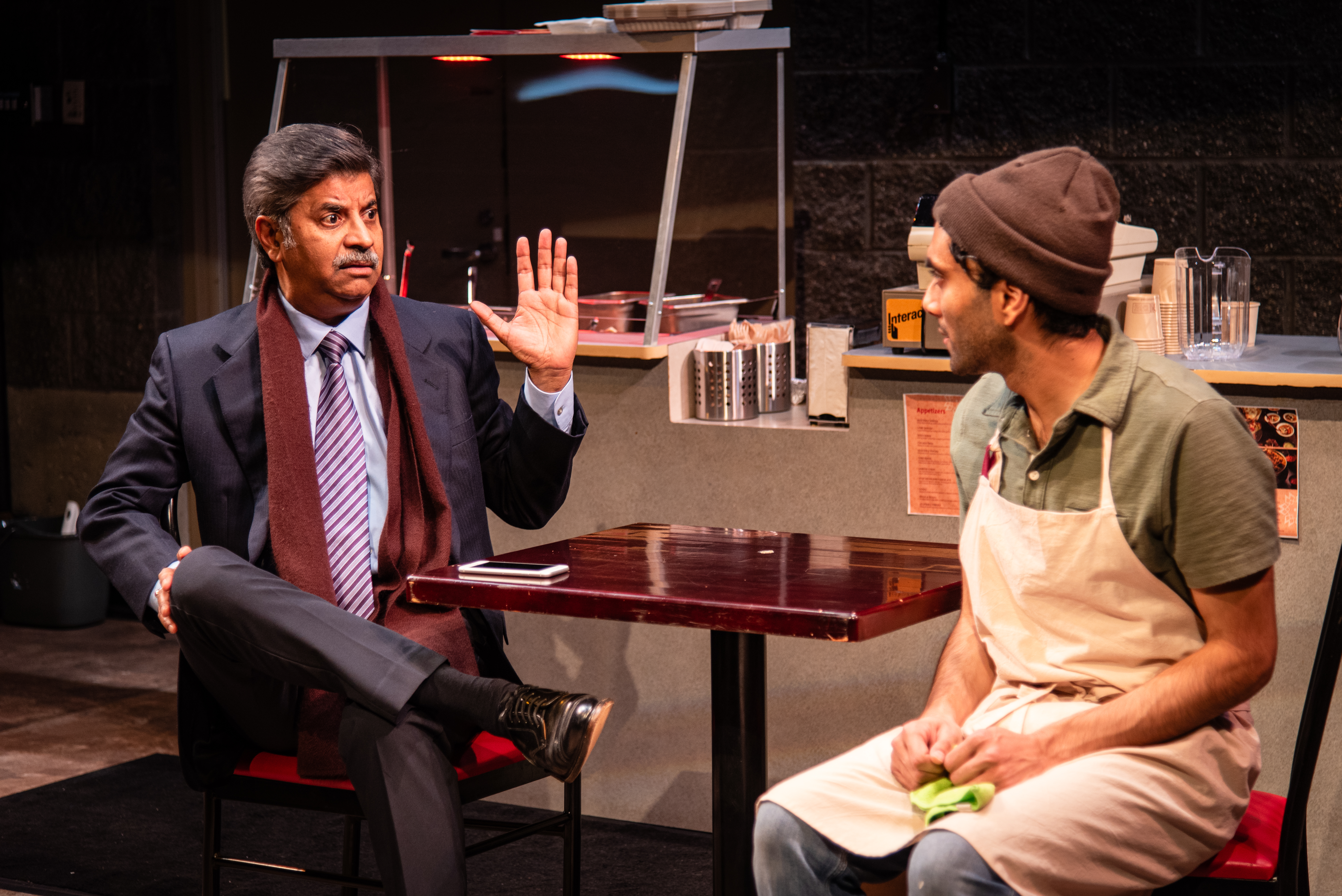
Patrick Rizzotti’s set design is equal parts functional and charming. The glass counters with food, minimal furniture, storage shelves and incandescent tube lights conjure a realistic imitation of a South Asian food establishment. Jonathan Kim’s lighting design and Karthik Kadam’s costumes are lively and tasteful.
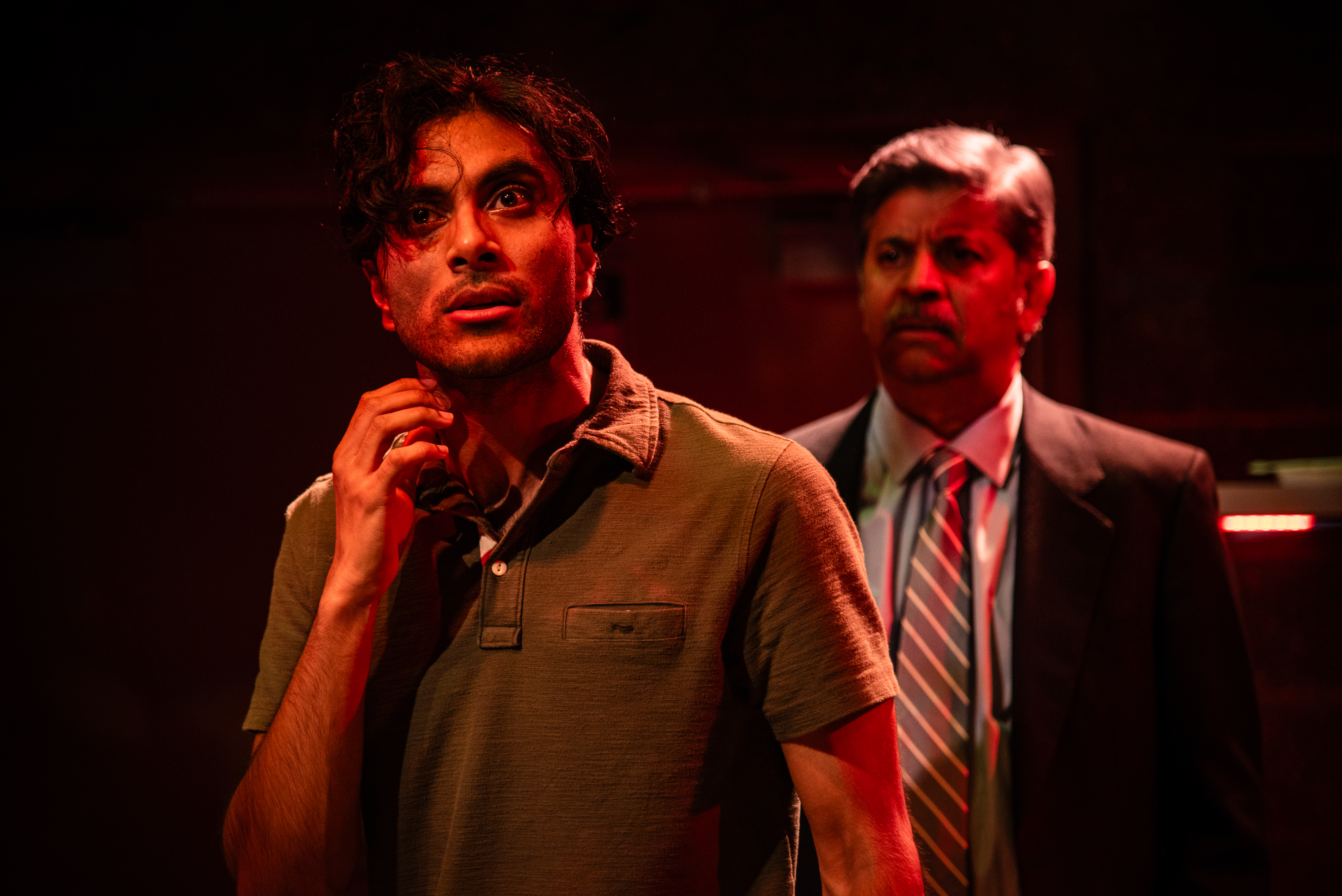
Irani is undoubtedly a maverick storyteller. His protagonist scrubs surfaces to make them shine like a mirror, yet the repeated invocation of invisible elements leaves an indelible mark. Moons, mosques, minarets, Jalal’s car and a mystical tree breathe magic into an otherwise morose tale about corruptible ambitions and inconsolable grief.
– Annapoorna Shruthi
